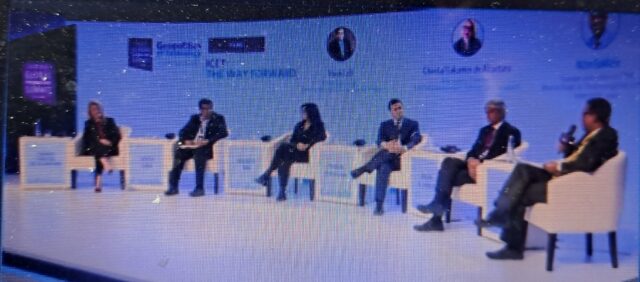NEW DELHI: “iCET marks the next major transformative phase in the India-US relationship.” With those words, Arun Singh, former ambassador to the US underscored just how important the India-US Initiative on Critical and Emerging Technologies (iCET), was to the relationship. Launched by President Biden and Prime Minister Modi last year, iCET is expected to be the key pivot around which India-US relations would move in the forthcoming decade.
Singh said that iCET would be “as transformative as the civil nuclear deal in 2008” and stated that though the agreement did not generate any nuclear commerce between the two countries, it started the process of dismantling technology restrictions and increasing cooperation in the defence sector.
“Before the nuclear deal, we hardly bought any defence supplies from the US and now we are contracted to buy $23 billion worth of defence supplies. Defence technology partnerships are also on the rise and as for semiconductors heavy investments have been made on both sides and an MoU inked by the commerce ministries on both sides will better facilitate the process,” he noted.
Tarun Chhabra, Special Assistant to the US President and Senior Director for Technology and National Security, acknowledged that iCET had opened a window to issues on which both sides may have differed in the past. “There is now a great opportunity to place strategic technology partnership at the centre of the bilateral relationship. Over the last year, we have seen significant results especially with the state visit of Prime Minister Modi to the US in June this year. Whether you are looking at the co-production deal of the GE engine or cooperation in space which will be unveiled with the first joint mission between Nasa and Isro (in the first quarter of next year) there is much on which we can build.”
Chhabra added that both sides would export the strategic technologies developed by both sides to third countries. In response to a question, he said, “We are thinking about third countries depending on the sector. That’s something you will hear more about.”
Asked whether India and the US were working together on cloud offerings under the iCET agreement, and if both nations viewed the rise of Chinese hyperscale cloud providers in Southeast Asia and the Pacific Islands as a threat to national security, Chhabra said the need of the hour for both sides remained on “trusted vendors” and “trusted geographies. “The trust is growing but we need to do more if we are to achieve our goals in the telecom space and also on AI.”
















